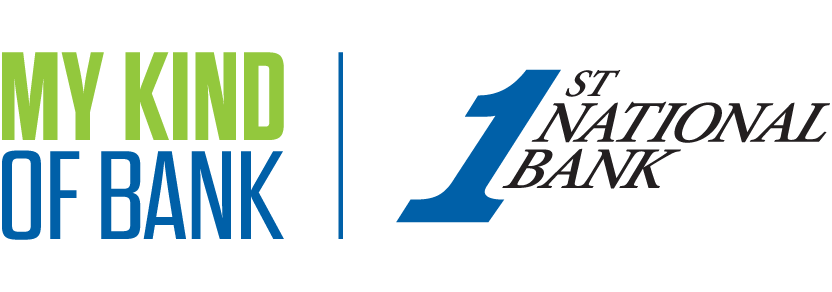Kick cyberthieves to the curb. We offer three low-cost plans to help you protect yourself against identity theft.
Details
1st National Bank offers you four affordable options to help you protect yourself against identity theft, detect if your identity has been compromised, and resolve and restore any issues created by identity fraud.
Identity Management ($3.99/Month)
- Access to best practices for managing personal information
- Resotartion with Personal Fraud Investigator
id-INTEGRITY ($6.99/Month)
- Consultation on best practices for managing personal information
- Online communication guidelines
- Action plan, including a licensed private investigator in the event of an identity compromise
- Dark Web Monitoring
id-INTEGRITY PLUS ($9.99/Month)
- All idINTEGRITY services PLUS…
- Ongoing single bureau credit monitoring including; new account openings, credit inquiries, payment delinquencies, public record changes and change of address. Credit monitoring may be one of the earliest ways to detect fraudulent activity.
id-INTEGRITY COMPLETE ($12.99/Month)
- All idINTEGRITY services PLUS...
- Complete credit bureau monitoring including Equifax, TransUnion and Experian.
Looking for options for Minors?
- Add Minor Monitoring to any of the idINTEGRITY opttions above.
- Minor id-INTEGRITY $3.99 for up to 4 minors
Ten Ways to Prevent Card Data or Identity Theft
- Each year, request a free credit report from the three credit reporting companies at annualcreditreport.com or by calling (877) 322-8228. Reviewing these reports can help detect fraud. Remember to request credit reports for underage members of your household. Fraudsters often focus on young people because their credit is not established yet.
- Cancel cards you no longer use.
- Visit your financial institution's and other creditors' websites at least weekly to monitor account activity.
- Use a crosscut shredder to destroy private documents you no longer need.
- Do not respond to unsolicited e-mails, telephone calls, or text messages that ask for personal information.
- Keep your Social Security card and checks at home in a secure place.
- Do not order checks with your Social Security number or driver's license number printed on them.
- When creating passwords or passcodes, avoid using obvious numerical sequences (for example: 1234), your birth date, your Social Security number, or your mother's maiden name.
- Do not store confidential information on computers, memory sticks, cell phones, or other electronic devices.
- Ask your financial institution about its anti-fraud programs and make sure it has your current contact information.
